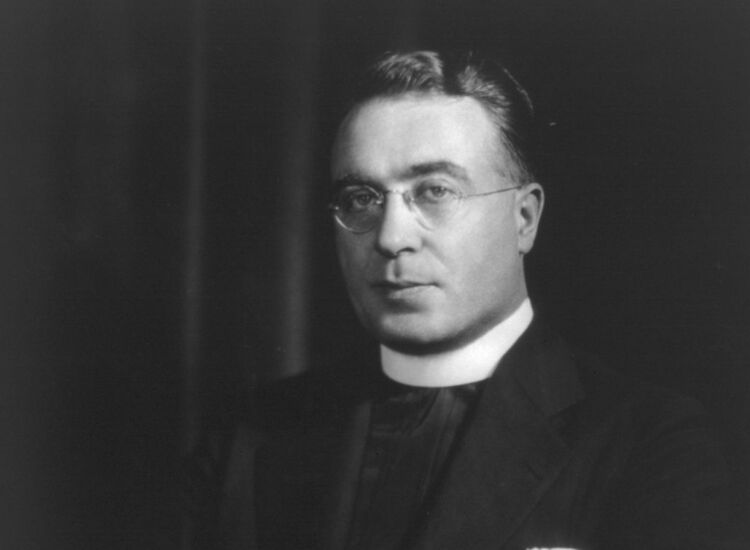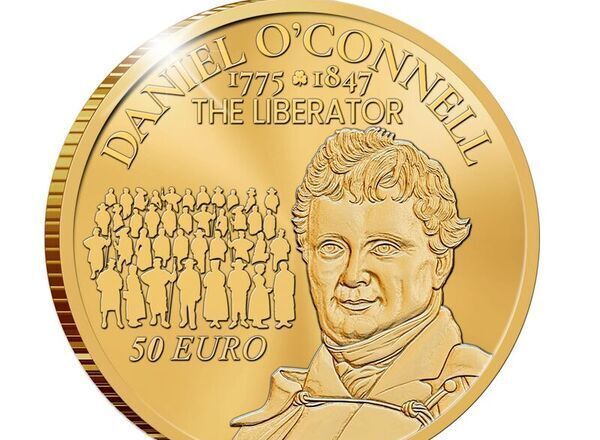Many fine words, songs and poems have been written about the Easter Rising of 1916, which began on April 24 in that year.
Some were written by those who waited in the prisons to be executed. Others were personal recollections of that period written by those outside of the prisons, in the weeks, months and years after the Rising. They were moved by the courage and tenacity of the 1916 Leaders and by the individual stories of bravery of those who participated in that great event.
In 1966, the Merry Ploughboy by Dermot O’Brien was number one for six weeks in the Irish charts. It was hugely popular and remains so today:
“And we're all off to Dublin in the green, in the green
“Where the helmets glisten in the sun
“Where the bay'nets flash and the riffles crash
“To the rattle of a Thompson gun”
Kevin Barry has been a perennial favorite which has been recorded many times over the years, including by Paul Robson and Leonard Cohen. The Clancy Brothers and Tommy Makem sang Freedom’s Sons:
“They were the men with a vision, the men with a cause
“The men who defied their oppressor's laws
“The men who traded their chains for guns
“Born into slav'ry, they were Freedom's Sons”
Rod Stewart has recorded Grace which tells of the love and marriage of 1916 Joseph Plunkett and Grace Gifford just hours before his execution:
“Oh Grace just hold me in your arms and let this moment linger
“They'll take me out at dawn and I will die
“With all my love I place this wedding ring upon your finger
“There won't be time to share our love for we must say goodbye”
And there are countless more songs and poems. Most of these songs were about men but many of today’s singers correct that. There are very few songs in Irish about the Rising but Sean O’Riada’s icon, classic music score for the film Mise Éire will still stir the heart and the spirit.
These are some of my personal words and poems and lyrics. Enjoy:
Address to Court Martial: Pádraic Mac Piarais:
“Believe that we, too, love freedom and desire it. To us it is more desirable than anything in the world. If you strike us down now, we shall rise again and renew the fight. You cannot conquer Ireland. You cannot extinguish the Irish passion for freedom. If our deed has not been sufficient to win freedom then our children will win it by a better deed.”
Connolly by Liam MacGabhann
“The man was all shot through that came today
“Into the barrack square;
“A soldier I - I am not proud to say
“We killed him there;
“They brought him from the prison hospital;
“To see him in that chair
“I thought his smile would far more quickly call
“A man to prayer.
“Maybe we cannot understand this thing
“That makes these rebels die;
“And yet all things love freedom - and the Spring
“Clear in the sky;
“I think I would not do this deed again
“For all that I hold by;
“Gaze down my rifle at his breast - but then
“A soldier I.
“They say that he was kindly - different too,
“Apart from all the rest;
“A lover of the poor; and all shot through,
“His wounds ill drest,
“He came before us, faced us like a man,
“He knew a deeper pain
“Than blows or bullets - ere the world began;
“Died he in vain?
“Ready - present; And he just smiling - God!
“I felt my rifle shake
“His wounds were opened out and round that chair
“Was one red lake;
“I swear his lips said 'Fire!' when all was still
“Before my rifle spat
“That cursed lead - and I was picked to kill
“A man like that!”
“For What Died The Sons Of Róisín: Luke Kelly
“For what died the sons of Róisín, was it fame?
“For what died the sons of Róisín, was it fame?
“For what flowed Irelands blood in rivers
“That began when Brian chased the Dane
“And did not cease nor has not ceased
“With the brave sons of '16
“For what died the sons of Róisín, was it fame?
“For what died the sons of Róisín, was it greed?
“For what died the sons of Róisín, was it greed?
“Was it greed that drove Wolfe Tone
“To a pauper’s death in a cell of cold wet stone?
“Will German, French or Dutch inscribe the epitaph of Emmet?
“When we have sold enough of Ireland to be but strangers in it
“For what died the sons of Róisín, was it greed?
“To whom do we owe our allegiance today?
“To whom do we owe our allegiance today?
“To those brave men who fought and died
“That Róisín live again with pride?
“Her sons at home to work and sing
“Her youth to dance and make her valleys ring
“Or the faceless men who for Mark and Dollar
“Betray her to the highest bidder
“To whom do we owe our allegiance today?
“For what suffer our patriots today?
“For what suffer our patriots today?
“They have a language problem, so they say
“How to write ‘No Trespass’ must grieve their heart full sore
“We got rid of one strange language
“Now we are faced with many, many more,
“For what suffer our patriots today?
The Foggy Dew: Charles O’Neill
“As down the glen one Easter morn to a city fair rode I
“There armed lines of marching men in squadrons passed me by
“No fife did hum nor battle drum did sound its dread tattoo
“But the Angelus bell o’er the Liffey swell rang out through the foggy dew
“Right proudly high over Dublin town they hung out the flag of war
“’Twas better to die ’neath an Irish sky than at Suvla or Sedd El Bahr
“And from the plains of Royal Meath strong men came hurrying through
“While Britannia’s Huns, with their long-range guns sailed in through the foggy dew
“’Twas Britannia bade our Wild Geese go that small nations might be free
“But their lonely graves are by Suvla’s waves or the shore of the Great North Sea
“Oh, had they died by Pearse’s side or fought with Cathal Brugha
“Their names we will keep where the Fenians sleep ’neath the shroud of the foggy dew
But the bravest fell, and the requiem bell rang mournfully and clear
“For those who died that Eastertide in the springing of the year
“And the world did gaze, in deep amaze, at those fearless men, but few
“Who bore the fight that freedom’s light might shine through the foggy dew
“Ah, back through the glen I rode again and my heart with grief was sore
“For I parted then with valiant men whom I never shall see more
“But to and fro in my dreams I go and
“I’d kneel and pray for you,
“For slavery led, O glorious dead,
“When you fell in the foggy dew
Statement by James Connolly to his Court Martial: May 9th, 1916:
“We went out to break the connection between this country and the British Empire, and to establish an Irish Republic. We believed that the call we then issued to the people of Ireland, was a nobler call, in a holier cause, than any call issued to them during this war, having any connection with the war. We succeeded in proving that Irishmen are ready to die endeavouring to win for Ireland those national rights which the British Government has been asking them to die to win for Belgium. As long as that remains the case, the cause of Irish freedom is safe.
“Believing that the British Government has no right in Ireland, never had any right in Ireland, and never can have any right in Ireland, the presence, in any one generation of Irishmen, of even a respectable minority, ready to die to affirm that truth, makes that Government for ever a usurpation and a crime against human progress.”








